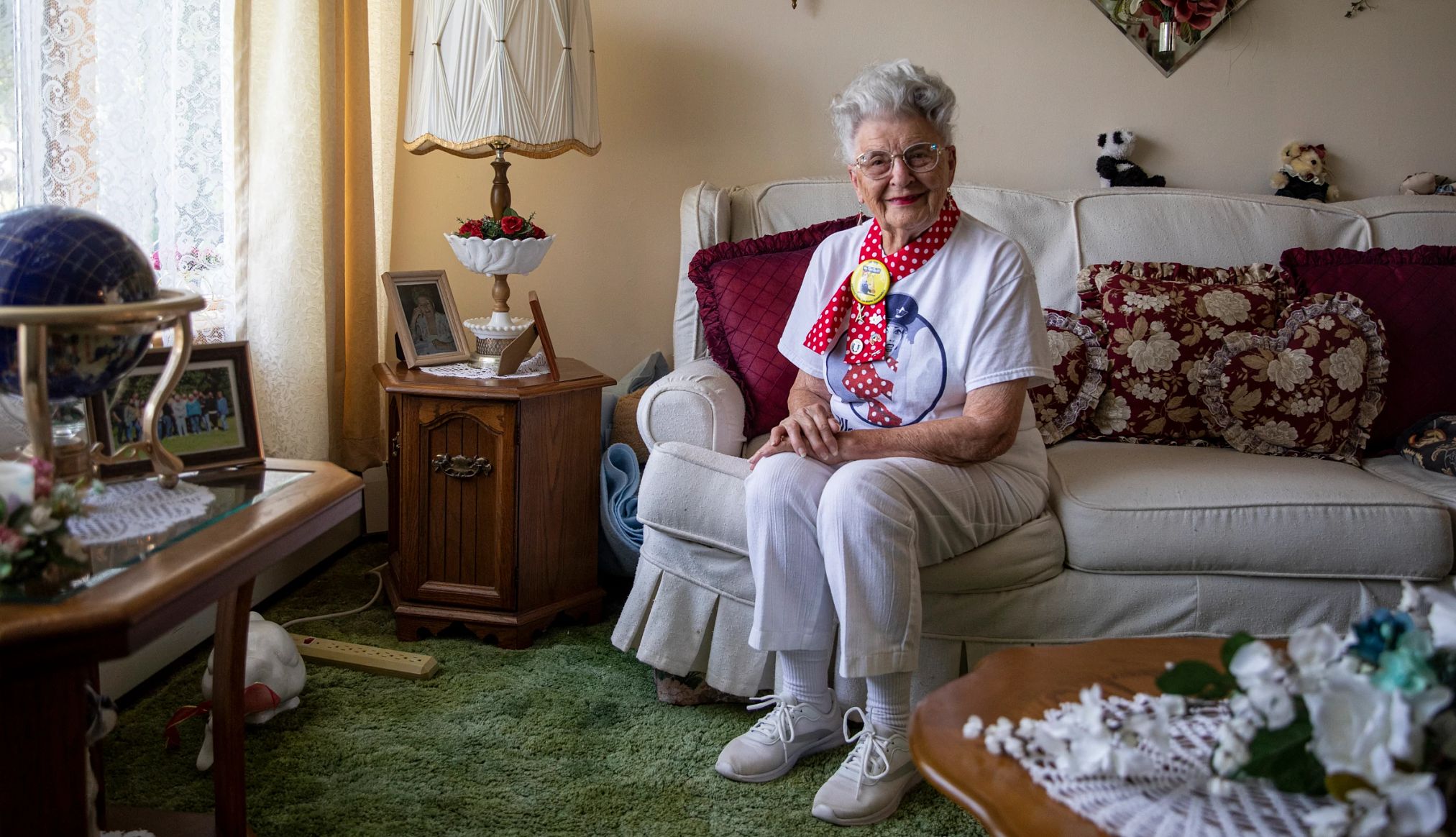
Meet a real-life rosie the riveter | members only
- Select a language for the TTS:
- UK English Female
- UK English Male
- US English Female
- US English Male
- Australian Female
- Australian Male
- Language selected: (auto detect) - EN
Play all audios:

At 98, Mae Krier continues to pull up her sleeves to work. As one of the original Rosie the Riveters, she’s been a powerful advocate for recognizing the millions of American women who built
aircraft, ships, vehicles, weaponry and ammunition vital to the U.S.-Allied victory during WWII. “My dream was to get the American women recognized after WWII,” Krier says. “The men came
home to flying flags and parades. And when I came home with a pink slip, it just wasn’t fair. Because the men will tell you, they couldn’t win the war without us.” Though she doesn’t recall
the exact year she began her campaign for recognition, Krier remembers that she picked up her pen and “started writing everywhere.” For decades she’s collaborated with other “Rosies,”
pushing for more awareness of their contributions. Watch for Krier on July 4, when she and others from the greatest generation will take the stage during _A Capitol Fourth_ in Washington,
D.C. The live concert airs at 8 p.m. ET on PBS. In 2020, the Department of Labor inducted the Rosies into its Hall of Honor, saying some 6 million women held war-industry jobs during
WWII. In April of this year, Krier accepted the Congressional Gold Medal bestowed collectively on the dwindling ranks of Rosies. She says that while she was “elated” to receive the
recognition, “that journey getting there, you can’t put a price on that journey — all the wonderful people I met.” More tributes came in June, when she represented the trailblazing Rosies on
a trip to Normandy, France, commemorating the 80th anniversary of D-Day. A group of Rosie the Riveters ahead of a 2024 Congressional Gold Medal ceremony in Washington, D.C. Congress passed
legislation authorizing the medal in 2020, after years of urging by Phyllis Gould and Mae Krier, who accepted the award on behalf of all Rosies. Kenny Holston/The New York Times/Redux “While
in Normandy, the first day everything was about the men and the storming of the beaches. Not once did they mention that the equipment they were using was built by women,” Krier tells AARP.
“Why do we have to keep reminding them that had it not been for women, we may not have won the war?” KRIER’S PATH TO BECOMING A ROSIE Krier, who lives in Bucks County, Pennsylvania, says
she’ll never forget December 7, 1941 — the attack on Pearl Harbor. Just days later, Hitler declared war on the U.S. And about a year and a half later, Krier joined the ranks of her fellow
women to serve in the war effort. It was her first real job. In 1943, at just 17 years old, too young to vote and nearly 1,300 miles from her home in North Dakota, she became a riveter. Her
job: assembling B-17 bombers, the so-called Flying Fortresses, for Boeing in Seattle. With a badge restricting her to specific parts of the plant, she was handed an air-powered rivet gun and
underwent two weeks of training.
